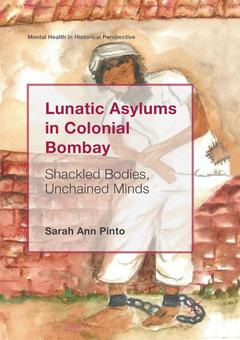Description
Lunatic Asylums in Colonial Bombay, Softcover reprint of the original 1st ed. 2018
Shackled Bodies, Unchained Minds
Mental Health in Historical Perspective Series
Language: English
Keywords
Bombay Presidency; India; Trauma; Mental health; Treatment; Colonial; Administration; Wellbeing; Family; Indigenous; Madness; Soundscape
Publication date: 12-2018
Support: Print on demand
Publication date: 09-2018
Support: Print on demand
Description
/li>Contents
/li>Biography
/li>Comment
/li>
This book traces the historical roots of the problems in India?s mental health care system. It accounts for indigenous experiences of the lunatic asylum in the Bombay Presidency (1793-1921). The book argues that the colonial lunatic asylum failed to assimilate into Indian society and therefore remained a failed colonial-medical enterprise. It begins by assessing the implications of lunatic asylums on indigenous knowledge and healing traditions. It then examines the lunatic asylum as a ?middle-ground?, and the European superintendents? ?common-sense? treatment of Indian insanity. Furthermore, it analyses the soundscapes of Bombay?s asylums, and the extent to which public perceptions influenced their use. Lunatic asylums left a legacy of historical trauma for the indigenous community because of their coercive and custodial character. This book aims to disrupt that legacy of trauma and to enable new narratives in mental health treatment in India.
Sarah Ann Pinto completed her PhD in History from Victoria University of Wellington in 2017. Her awards include the ‘Bowen Prize for the Best Student in History, 2017', and the ‘Fr Henry Heras Prize, 2008’. Her passion for history and healing motivates her research. Through her work, she intends to enable new narratives in mental health treatment.
Takes the experience of Indian patients, families and local practitioners as the focus of this study, rather than psychiatry
Traces the history of lunatic asylums in Bombay, drawing extensively on Indian and British archival sources
Offers a new narrative of mental health treatment in India through its exploration of the historical traumas associated with these colonial institutions




